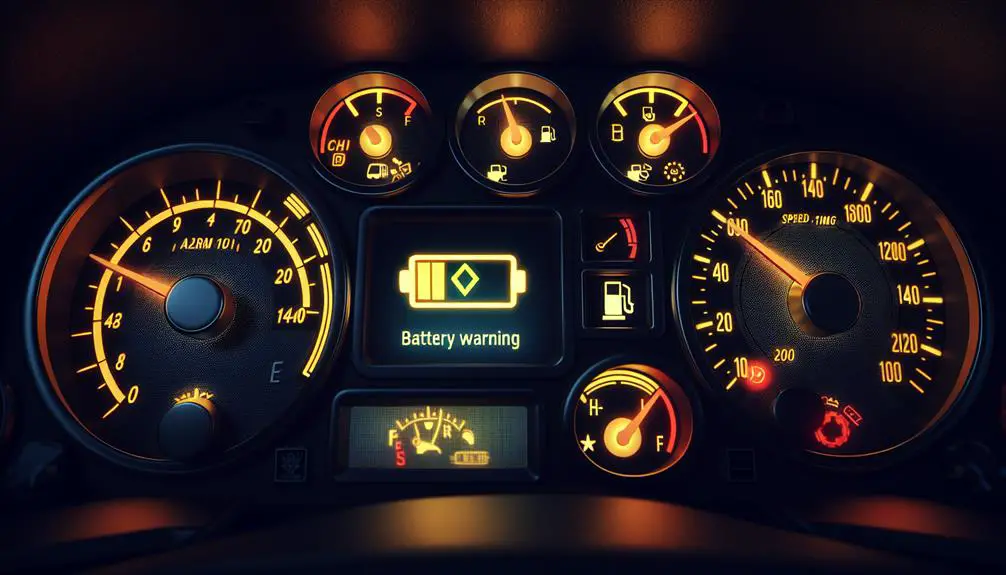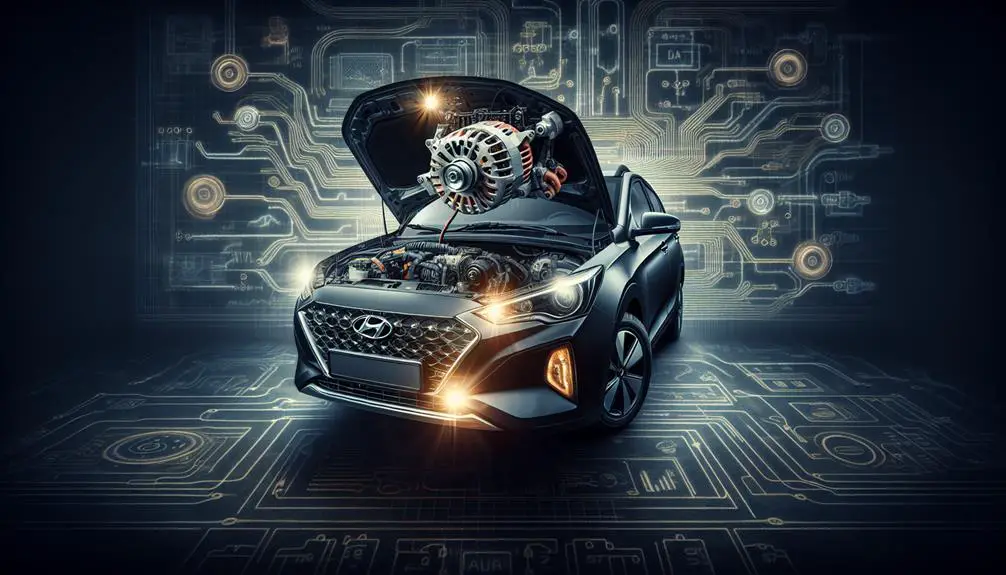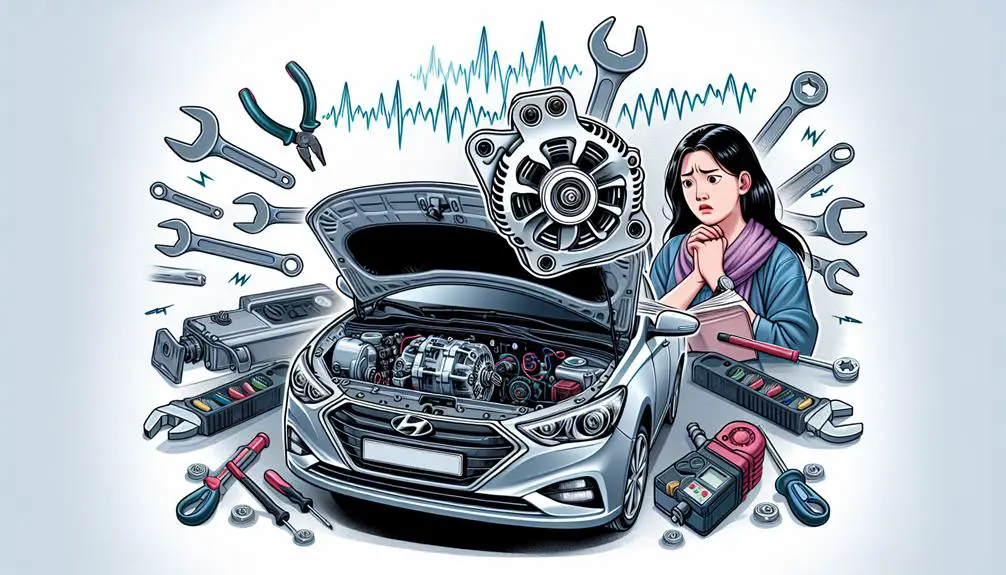If your Hyundai exhibits warning lights, battery trouble, electrical issues, engine stalling, or odd noises, it's likely your alternator failing.
Early recognition prevents abrupt breakdowns and major failures.
Warning Lights

When you see a warning light on your dashboard that looks like a battery or says 'ALT', it means there might be a problem with your Hyundai's alternator. This doesn't mean the alternator is broken, but it's not charging your car's battery correctly. The alternator is important because it charges the battery and powers the car's electrical system while driving. If this light is on, you should check it out.
If your headlights are too dim or too bright, or if your car's electrical parts like the radio or power windows aren't working well, it could mean the alternator isn't working properly.
It's important not to ignore these signs. A bad alternator can cause your battery to die because it's not charging correctly. You should get a professional to test your alternator soon. They'll check if the alternator's voltage matches what your Hyundai needs. If you wait too long to fix a failing alternator, it could damage your car's electrical system or cause your car to break down.
Battery Problems
When your Hyundai has trouble starting or you hear a clicking sound, it could be a battery issue. Batteries often last 3 to 5 years, so if yours is older, consider replacing it.
Dim or flickering lights can mean a battery problem, but might also indicate an alternator issue. Use a voltmeter to check; a healthy battery shows around 12.6 volts when the engine is off. If it's lower, the battery might be failing.
A swollen battery case points to a battery near its end, often caused by extreme temperatures. If the case bulges, replace the battery.
Needing frequent jump-starts also suggests the battery isn't holding a charge well. Check the battery before assuming the alternator is at fault.
Electrical Issues

Electrical problems in a Hyundai might show up as strange behavior on the dashboard or with other accessories, which could mean there's an issue with the alternator. If the lights inside the car and on the dashboard flicker or get dim when using the air conditioning or stereo, it suggests the alternator mightn't be working properly.
If power windows are slow or if the car's entertainment system isn't working right, it's a sign the electrical system isn't getting steady power, usually because the alternator is failing. Problems with the car's GPS or radio signal could also indicate a failing alternator. The alternator is important because it charges the car's battery and powers the electrical systems when the engine is on.
A clear sign of a problem is if the car's headlights change brightness unexpectedly, getting brighter when accelerating and dimmer when idling. This means the alternator's ability to provide power isn't consistent.
Engine Stalls
If your Hyundai stops running suddenly while driving, it might be because the alternator isn't working right. The alternator is important because it charges the battery and powers the car's electrical system. If it fails, the engine mightn't have enough power to keep running.
Here are some signs that the alternator might be the problem:
- Lights getting dim or flickering: This could happen to the headlights and dashboard lights. It means the electrical system isn't getting enough power.
- Battery warning light is on: This light on the dashboard means the alternator isn't charging the battery properly.
- Car is hard to start: If your Hyundai struggles to start, it might be because the battery isn't charged enough by the alternator.
- Electrical problems: Issues like the radio or air conditioning stopping could happen if the alternator can't power everything in the car.
If you notice these signs, it's important to get the alternator checked by a professional quickly to avoid your car stopping unexpectedly.
Noisy Operation

An unusual noise from the engine area of your Hyundai could indicate a failing alternator, which is a part that charges the battery while driving. Ignoring a growling or whining sound can lead to your car breaking down. The noise might be due to worn bearings in the alternator or a misaligned drive belt, both of which mean the alternator needs attention soon. Recognizing these noises early can prevent more serious issues later.
Here's a guide on noises and what they might mean:
- Growling: Worn bearings. Urgency: High.
- Whining: Misaligned belt. Urgency: Medium.
- Clicking: Loose alternator components. Urgency: Medium.
- Squealing: Belt slippage or wear. Urgency: High.
If you hear any of these noises, get your car checked by a professional to see if the alternator is the problem and to fix it. Catching the issue early can avoid bigger problems later and keep your Hyundai running well.
Conclusion
To sum it up, if you see warning lights on your dashboard, have battery problems, notice your car's electric parts not working well, your engine stops running, or hear loud noises from your car, it probably means your Hyundai's alternator needs to be checked.
It's important to fix it soon so you don't get stuck somewhere or have to pay more money later. Keeping your car in good shape helps keep you safe and makes driving easier.